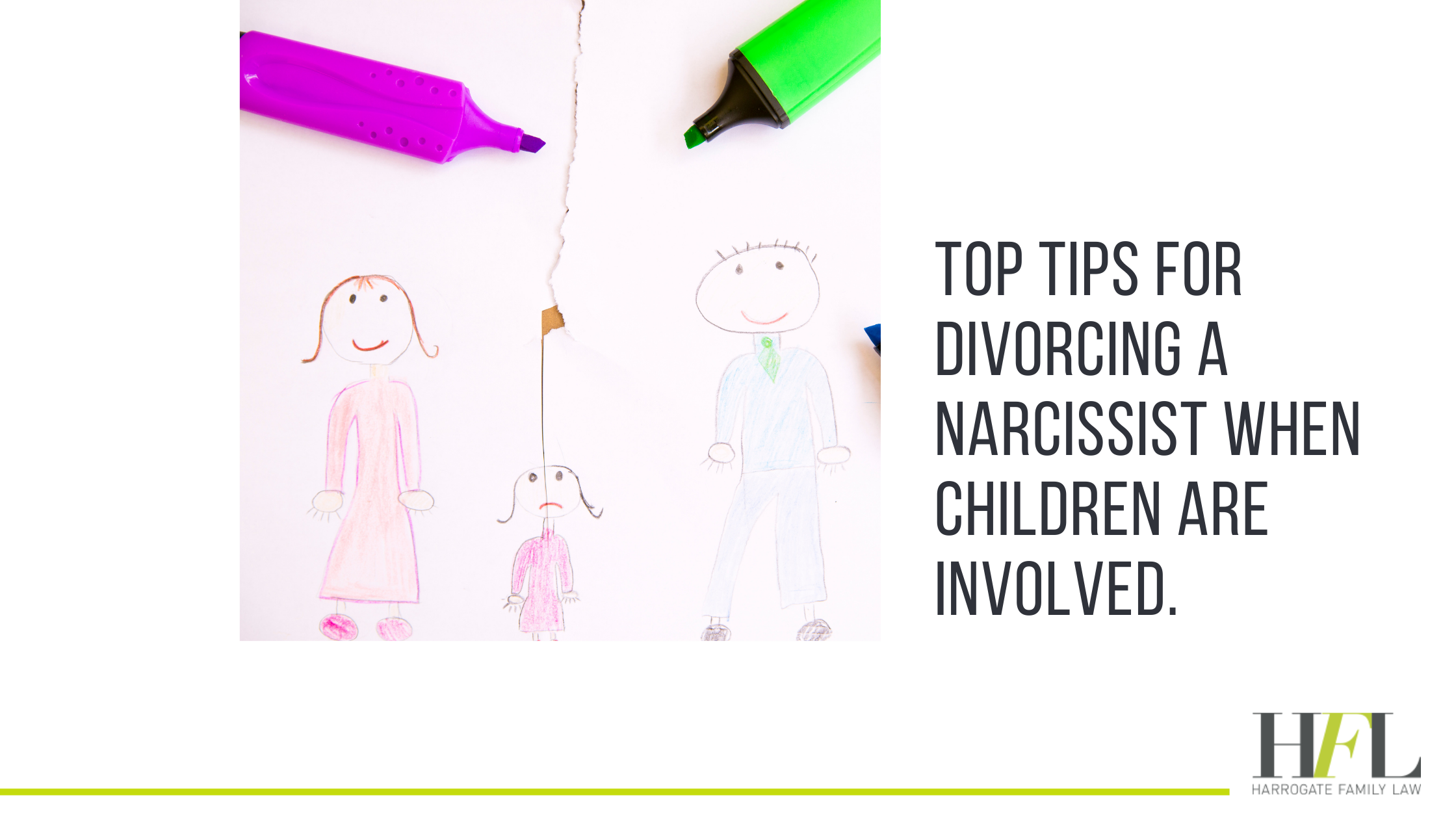Living with a narcissist is emotionally exhausting. So once you’ve made the decision that you’re ready for a divorce, the prospect of what lies ahead can be both stressful and difficult. This is even more so if there are children involved.
This week, we’re taking a look at how you can navigate your divorce from a narcissist, and help to protect your children as you look towards a new start.
How narcissists react to divorce
Narcissists thrive off getting their own way. When faced with a partner telling them that they wish to divorce, they’ll often see this as a competition that they absolutely need to win. Be prepared for them to make the whole process very difficult.
Narcissists like to be in control. The very fact that this decision has been taken without their input will likely result in them putting up a fight, and displaying no intentions of rational negotiation. This may include refusing to provide financial records, failing to cooperate with both yours and their legal team, and trying to obstruct or ignore court orders.
Ultimately, don’t be surprised if their narcissistic behaviour becomes even more heightened, increasing their tendency to try to bully and exploit the situation for their own benefit.
Narcissistic behaviour often extends to the children
If you’ve been in a relationship with a narcissist, you’ll know first hand that they’re extremely absorbed in themselves. Considering what’s best for the children or anyone else isn’t on the agenda.
This means that their abusive and destructive behaviour during divorce proceedings will often extend to their children. They may use their children as pawns or bargaining chips in divorce negotiations.
As soon as you recognise that this is happening, there are a few things you can do to minimise any negative impact.
What you can do for the children
Stay calm and neutral
Depending on their age, your child might ask you questions about the divorce and how life is changing. Try to answer them as calmly as possible. Stay neutral when talking about your ex partner as this will help to minimise stress for the children and avoid making them feel as if they have to choose between you. Remaining neutral also limits any ammunition your narcissistic partner may try to use against you. For example, accusing you of trying to turn the children against them.
Whilst you’re probably feeling anxious and angry, try not to let this show. Always use a calm and neutral tone and keep emotive language to a minimum when talking about the situation. Instead, try to focus on the positives and what’s going well.
Keep up routines and boundaries
Minimising disruption during a divorce can help the children with the transition. A good way to do that is to maintain routines and rules where possible, so that they feel a sense of consistency and familiarity.
A narcissistic parent may not cooperate with this, but try your best to stick to those routines when the children are in your care. Children need boundaries, and they’ll be much more likely to trust you and feel safe around you if they have an idea of what’s coming and what’s expected of them.
Consider going to a therapist
A therapist will have the tools to help you and your child work through the divorce. They’ll also be able to help address any developmental issues that may occur during this big life change.
And sometimes, you just may not know how to best support your children through the transition. After all, this is new territory for the whole family. Don’t be afraid to use the extra support as and when you need it.
Talk to your children
Keeping communication open with your children is really important. It gives them the confidence to know that they can talk to you and ask you questions about anything that’s worrying them.
Make sure you’re always reassuring them that the divorce isn’t their fault, and let them be open and honest about how they’re feeling.
Don’t lean on your child for emotional support
That being said, it’s important not to use your children for emotional support. Even if they’re emotionally intelligent, caring, or mature for their age, they aren’t properly equipped and it’s not appropriate for them to support you in that way.
Make sure you’re seeking support from someone who is able to provide it to you properly, without compromising their own well-being.
Seek expert legal support
Often, when you’re divorcing a narcissist, you need an expert to do the talking for you, or at least give you the advice and guidance you need to ensure you’re on the right path. That’s exactly what we aim to do at Harrogate Family Law.
For a legal team that truly cares about you and your family, get in touch with us today, and let’s see how we can help.






